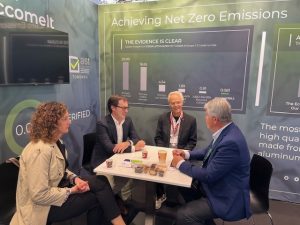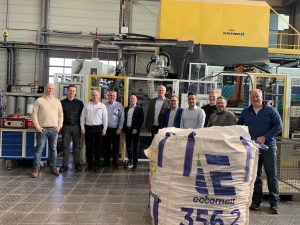Great strides are being made in negotiations between the Trump administration and Rusal (the second largest aluminum producer in the world) and Gaz Group (a Russian automotive conglomerate).
The Treasury Department announced on Wednesday December 19, 2018 that it would be lifting sanctions against Rusal and Gaz Group. It felt that the two companies had made significant restructuring and corporate governance changes which now “allow them to meet the criteria to be delisted within the next 30 days.” The changes that led to the lifting of sanctions include the reducing of Deripaska’s direct and indirect stake in the companies and the overhauling of the composition of the board.
Deripaska will remain on the sanctions list and his properties would remain blocked as required under law. Furthermore, there will be new sanctions laid against Russian individuals, including a former officer of Russia’s intelligence directorate who is associated with Deripaska. Interference in the 2016 US presidential election, maligned internet activities (e.g., hackings), and ties to Russian President Vladimir Putin were all reasons cited for the individual sanctions.
The end to sanctions against Rusal and Gaz Group should come as no shock to American businesses that relied on the business for aluminum supply. Earlier this month, the Trump administration had extended the deadline for U.S businesses to cut ties with Rusa luntil January 21, 2019. Initially, experts thought that President Trump was trying to delay a clash with Congress over the handling of sanctions until after midterm elections. However, other industry analysts argued that the extension was a sign that Rusal was making progress in discussions to lift sanctions against them, and they were right. This was not the first time that the wind-down period was extended; it was initially set to expire in June. In the last 3 months, the period was extended three times.
Assessing the Impact of Trump Administration’s Sanctions against Rusal | Recycled A356.2
The sanctions against Rusal, along with the trade tariffs, left American consumers and businesses in the aluminum industry reeling and scrambling to find alternatives.
Aluminum prices were the most affected, with the price per pound rising more than 20% since April 5, the day before the sanctions were declared, and reaching their highest since 2011. And it’s not just the processed metal: Alumina prices surged by more than 25% as well.
In addition, transport, construction and packaging industries took a hit as a direct result of the sanctions. Aluminum is the key material in airplanes made by Boeing Co. and Airbus SE. The use of aluminum in the auto industry has increased in the last decade, with the top-selling Ford Motor Co. F-150 pickup truck abandoning steel several years ago. Many manufacturers were forced to look for new suppliers that did not include Rusal.
With the increase in the cost of aluminum, companies had no other choice but to raise the prices of consumer products or fear loss of sales or closure. Many American companies announced that tariffs and sanctions could force them to raise prices, including Ford, Coca-Cola and General Motors (GM). A number of corporations (e.g., GM) have also threatened mass layoffs, restructuring, and plant closures.
While it is a relief that some sanctions have been lifted, we cannot forget that there will be new ones waged against stakeholders in the aluminum industry. The impact of those sanctions remains to be seen. However, one thing is for sure: the aluminum industry is in a volatile state. One big move to dethrone a major player could see the price of aluminum skyrocketing and American businesses (e.g., GM) downsizing yet again.
How Recycled Aluminum Can Improve Shortfalls in Aluminum Supply | Recycled A356.2 | Substitute A356.2
Reading about how the sanctions have affected American businesses and consumers, it becomes obvious how recycled aluminum can further ameliorate the situation. Manufacturers do not have to rely solely on raw aluminum materials for production. Reviving plants is not the only solution the Trump administration can explore to address the deficit in aluminum demand. Recycled aluminum is one avenue that is worth pursuing.
Aluminum is one of the most recycled and recyclable materials, so much so that almost 75% of all aluminum ever produced globally is still being used today. In fact, the quality of aluminum does not change much, no matter how many times it is recycled. The quality of eccomelt356.2 attests to the fact that aluminum can be recycled indefinitely if the right know-how for reprocessing and up-cycling is available.
In recent years, secondary aluminum production (e.g., recycled aluminum) has increased dramatically in the United States as a result of scrap-collection programs and significantly lower production-energy requirements. Production has gone from 2.4 million tons in 1988 to 3.7 million tons in 2018. Numbers are expected to only increase in the coming years as more recoverable scrap is made available.
Eccomelt356.2, the manufacturer of an eco-friendly and economical A356.2 substitute, is the closest prime on the market and an antidote to the shortfall of primary aluminum in the U.S. as its products are made solely from eco-friendly, recycled aluminum.
January 16, 2019 Update: Decision to Lift Sanctions against Companies Owned by Deripaska subject to Congressional Review
The Trump administration’s decision to lift sanctions against companies controlled by Russian oligarch Oleg Deripaska has been vetoed by leading Senate and House Democrats. Senate Democratic leader Chuck Schumer (D-NY) has filed a resolution criticizing the Treasury Department’s decision to lift the sanctions, citing “critical questions” the administration must answer.
The Countering America’s Adversaries through Sanctions Act (CAATSA) mandated a congressional review of the proposed changes to the sanction regime. The sanctions will not be lifted until the review is complete. The review process will give the Congress an opportunity to block the action, but it will not require Congress to approve it. Both the House and the Senate would need to pass Sen. Schumer’s resolution before January 18 (when the congressional review times out) to reverse the Treasury’s action. Notably, though, OFAC reserves the right to re-list these companies should they fail to comply with the agreement.
Eccomelt356.2 | Direct Substitute for A356.2 Ingot, Sow & T-bar
Alongside Alcan R&D, Eccomelt has developed a patented revolutionary process that produces a specification alloy from aluminum wheels at a lower cost than traditional methods and that meets that EPA definition of CLEAN CHARGE.
Eccomelt ships products to foundries within North America including the United States, Canada, and Mexico, and worldwide, such as France, Ireland, Italy, Serbia, and Spain. Our product is the material of choice for many consumers because it is chemically pure and environmentally-friendly. Its shredded form has achieved higher melting rates than Ingot, Sow or T-Bar. Environmental testing has also proven the process eliminates all coatings.
If you are an industry affected by the tariffs and proposed sanctions and looking for alternatives please give us a call. We can be contacted at (888) 356-9557 or visit our website and fill out our contact form.



